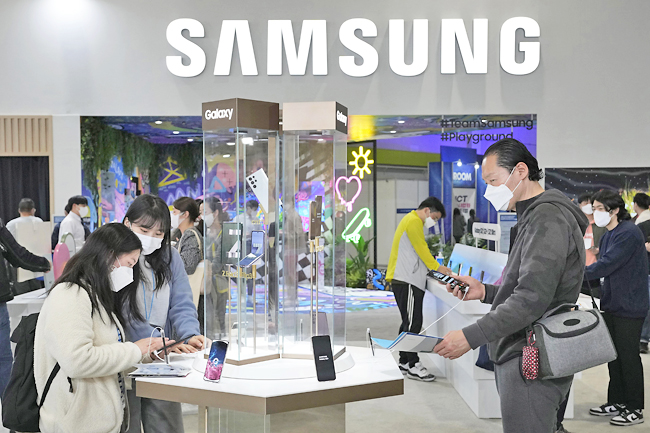SEOUL, SOUTH KOREA (AP) – Samsung Electronics is shifting away from fossil fuels and aiming to entirely power its global operations with clean electricity by 2050, a challenging goal that experts said could be hampered by South Korea’s modest climate change commitments.
South Korea-based Samsung is a top producer of computer memory chips and smartphones and the second biggest energy consumer behind Walmart among hundreds of global companies that have joined the “RE100” campaign to get 100 per cent of electricity from renewable sources like wind or solar power.
In announcing its target yesterday the company said it aims to achieve net zero carbon emissions across its mobile device, television and consumer electronics divisions by 2030, and across all global operations including semiconductors by 2050.
It plans to invest KRW7 trillion (USD5 billion) through 2030 on projects aimed at reducing emissions from process gases, controlling and recycling electronic waste, conserving water and minimising pollutants. It plans to develop new technologies to reduce power consumption in consumer electronics devices and data centres, which would require more efficient memory chips. It also will set long-term goals to reduce emissions in supply chains and logistics.

“Samsung is responding to the threats of climate change with a comprehensive plan that includes reducing emissions, new sustainability practices and the development of innovative technologies and products that are better for our planet,” the company’s CEO, Jong-Hee Han said in an emailed statement.
Samsung’s plan drew praise from some of its investors, including Dutch pension fund manager APG, which said the company could potentially make a “significant contribution” in cleaning up South Korea’s electricity market, considering its impact and influence on the national economy.
Director of energy and head of RE100 at the London-based Climate Group Sam Kimmins, which leads the clean electricity initiative, said Samsung’s commitment would send a message to others in the market that “it is possible, and critical, to switch to 100 per cent renewable electricity”.
APG expressed concern, however, that Samsung’s announcement comes at a time when South Korea has been dialing back on its climate change goals.
The conservative government of President Yoon Suk-yeol, who took office in May, has focussed much of its energy policy on promoting nuclear-generated electricity. Desperate to boost a weak economy, Yoon’s government has also indicated reluctance to sharply reduce the country’s dependence on coal and gas, which generate about 65 per cent of South Korea’s electricity.
South Korea got 7.5 per cent of its electricity from renewable sources in 2021, significantly lower than the 30 per cent average among rich nations making up the Organization for Economic Cooperation and Development. Yoon’s government recently adjusted the country’s renewable energy target to 21 per cent of the total energy mix by 2030, softening the 30-per-cent target announced by his liberal predecessor, Moon Jae-in.






